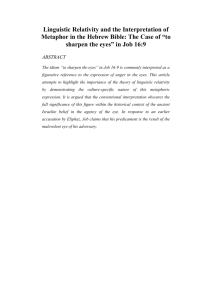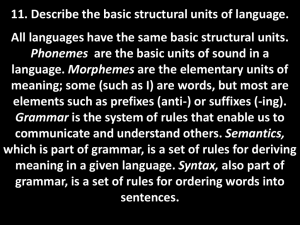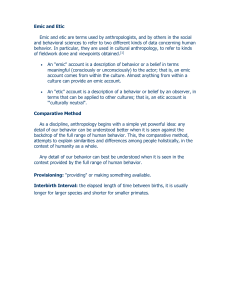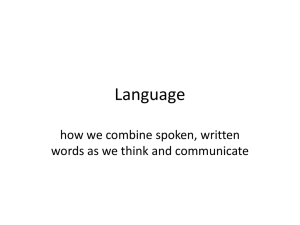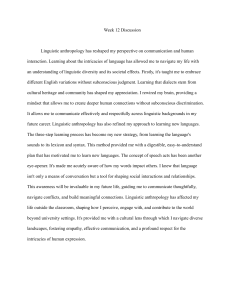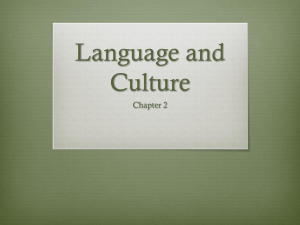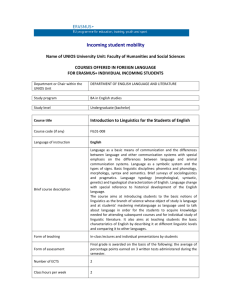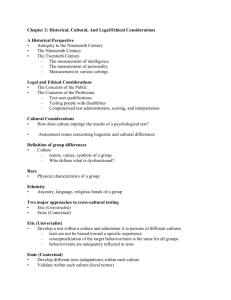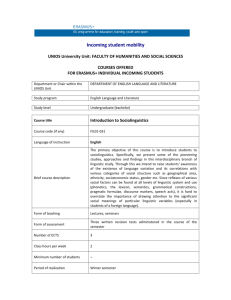ANTH 104 Midterm Review
advertisement
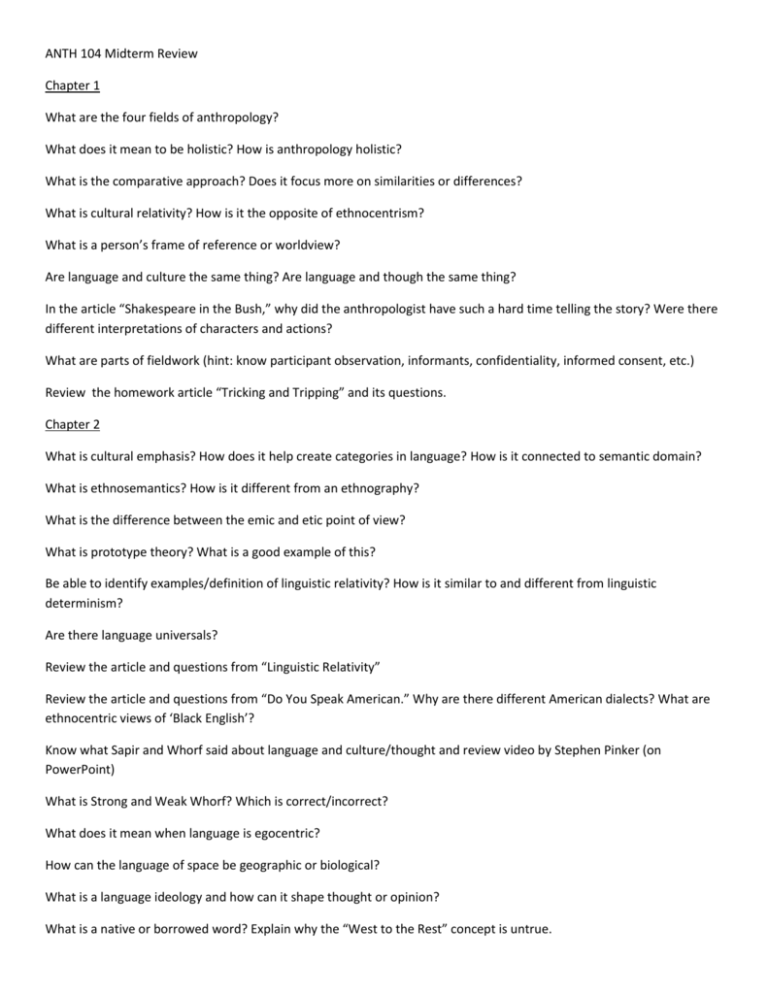
ANTH 104 Midterm Review Chapter 1 What are the four fields of anthropology? What does it mean to be holistic? How is anthropology holistic? What is the comparative approach? Does it focus more on similarities or differences? What is cultural relativity? How is it the opposite of ethnocentrism? What is a person’s frame of reference or worldview? Are language and culture the same thing? Are language and though the same thing? In the article “Shakespeare in the Bush,” why did the anthropologist have such a hard time telling the story? Were there different interpretations of characters and actions? What are parts of fieldwork (hint: know participant observation, informants, confidentiality, informed consent, etc.) Review the homework article “Tricking and Tripping” and its questions. Chapter 2 What is cultural emphasis? How does it help create categories in language? How is it connected to semantic domain? What is ethnosemantics? How is it different from an ethnography? What is the difference between the emic and etic point of view? What is prototype theory? What is a good example of this? Be able to identify examples/definition of linguistic relativity? How is it similar to and different from linguistic determinism? Are there language universals? Review the article and questions from “Linguistic Relativity” Review the article and questions from “Do You Speak American.” Why are there different American dialects? What are ethnocentric views of ‘Black English’? Know what Sapir and Whorf said about language and culture/thought and review video by Stephen Pinker (on PowerPoint) What is Strong and Weak Whorf? Which is correct/incorrect? What does it mean when language is egocentric? How can the language of space be geographic or biological? What is a language ideology and how can it shape thought or opinion? What is a native or borrowed word? Explain why the “West to the Rest” concept is untrue. Review article and questions on “Does English Still Borrow Words from Other Languages?” What is an endangered language? How does globalization affect this? Why should we protect/save languages? Chapter 3 What is linguistic knowledge? What is the difference between phonetics and phonemics? Which one is emic and which is etic? What are the three types of phonetics and how do they differ? What anatomy is used to create sounds? What is a phoneme? What does it mean if a phoneme is voiceless or voiced? What are examples? What do the two types of articulation mean? Place: Manner: What are the three ways sounds can be modified by using the tongue and lips? What are examples? What are suprasegmentals and examples? What is an allophone? Give an example. Define conditioned variation and be able to identify examples Define paralanguage and be able to identify examples Can languages be ‘less evolved’ or ‘more evolved’? Do hieroglyphics represent items (example: a picture of a bird means ‘bird’) or do they stand for something else? If so, what do they stand for?
